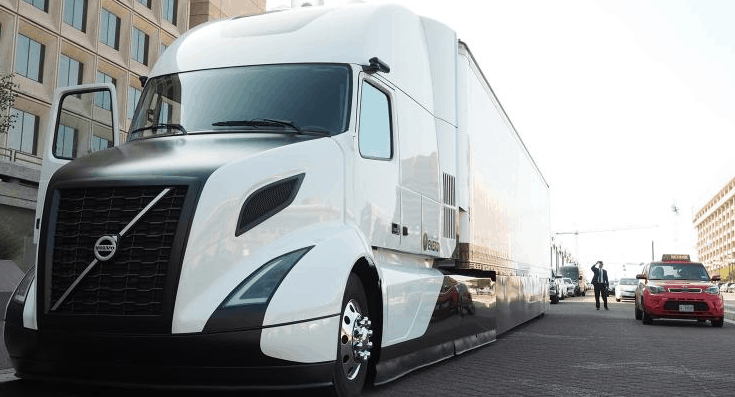Major drayage operator at U.S. busiest port complex looks to all-electric truck to hit emissions reduction goal.
Third-party logistics firm NFI Industries plans to test Volvo’s all-electric trucks next year as part of a project underscoring the increasingly strict rules facing drayage carriers in the Southern California market.
The New Jersey-based NFI says it will be operating Volvo’s (Nasdaq Stockholm: VOLVA) all-electric truck demonstrators in 2019. The all-electric, Class 8 trucks are part of a pilot project in Southern California, sponsored with the help of a $44.8 million award from the California Air Resources Board (CARB).
Volvo and the South Coast Air Quality Management District, which regulates emissions in the Los Angeles basin, plans to deploy 23 all-electric trucks next year for tests. NFI said the project aims to eliminate 3.5 tons of air pollutants and 3,020 tons of greenhouse gases annually.

The all-electric trucks will also incorporate “smart technologies to monitor truck performance and maximize vehicle uptime, including remote diagnostics and geofencing,” NFI said.
“Social responsibility is extremely important to us and we are continuously exploring and implementing new, innovative ways to create more sustainable operations for both NFI and our customers,” said NFI chief executive Sid Brown.
NFI says it is testing other emissions-reducing technologies from Volvo, including electric yard horses and compressed natural gas trucks. NFI is also exploring the viability of of electric and hydrogen fuel cell vehicles.
The test with NFI, which runs a total of 4,000 tractors nationwide, is one of the latest moves in the region aimed at reducing emissions from trucking in the U.S.’ busiest port complex. A state law was recently passed to bring greenhouse gas emissions down to 1990 levels over the next two years.
The Ports of Los Angeles and Long Beach each received $41 million from CARB to trial hydrogen fuel cell-electric hybrid Class 8 trucks built by Paccar’s (Nasdaq: PCAR) Kenworth. That project will roll out eight such trucks by the end of 2019.
The Ports have also implemented a 2014 age limit on any new drayage trucks registering to operate in the ports as of October.










